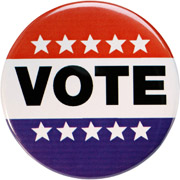ELECTION INSIGHTS 2016
Research-based perspectives from MIT
On Racial Attitudes and Bias | Ariel White
Assistant Professor of Political Science

"There is evidence that government is less responsive to people of color... that election officials are less likely to respond to informational questions about voting eligibility when they're sent from Hispanic-sounding names than when they're sent by non-Hispanic white names. These officials didn't respond rudely to Hispanic questioners; they simply didn't write back as often and didn't answer their questions as well."
— Ariel White, Assistant Professor of Political Science
ELECTION INSIGHTS 2016
Research-based perspectives from MIT
Question
Racial attitudes and racial bias have emerged as major factors in the 2016 presidential election. Based on your research and expertise on the subject, what is the most important perspective about racial bias in America that would be useful for a voter to know? And, if you could make one recommendation about a policy or approach that could help improve racial attitudes in America, what would it be?
•
Conversations about race and politics often focus on explicit racism, such as the use of racial slurs or group stereotypes. But more subtle types of bias persist and shape American political life in key ways. Implicit bias (unconscious or automatic bias against a group) has been found in workplace and school settings, but it also matters for our politics.
There's evidence that government is less responsive to people of color. In my work with Julie Faller and Noah Nathan, we have found that election officials are less likely to respond to informational questions about voting eligibility when they're sent from Hispanic-sounding names than when they're sent by non-Hispanic white names. These officials didn't respond rudely to Hispanic questioners; they simply didn't write back as often and didn't answer their questions as well.
Reducing implicit bias
This treatment could make it harder for non-white voters to figure out what they need to do to vote, especially in a year with a lot of new voter ID laws being implemented. Similarly, a paper by Daniel Butler and David Broockman showed that state legislators are more responsive to constituent requests for help when those (hypothetical) constituents have white-sounding names. Discriminatory behavior like this need not be driven by explicit racial animus to have important real-world effects on elections or constituent service.
Implicit bias has been studied in many contexts, and there are ways of combating it. Simply being aware of one's tendency to discriminate can help prevent it, and we can design systems to try to prevent discriminatory behavior. In our study of election officials, for example, we found that officials that were being monitored to prevent discrimination through the Voting Rights Act treated Hispanic and Anglo e-mailers equally. Knowing about and planning for implicit bias can help mitigate its effects.
Suggested Links
ELECTION INSIGHTS 2016
Research-based perspectives from MIT
Ariel White's webpage
MIT Department of Political Science
How to Vote in Every State
See video with info for your state — and vote!
Photograph of Ariel White by Stuart Darsch
